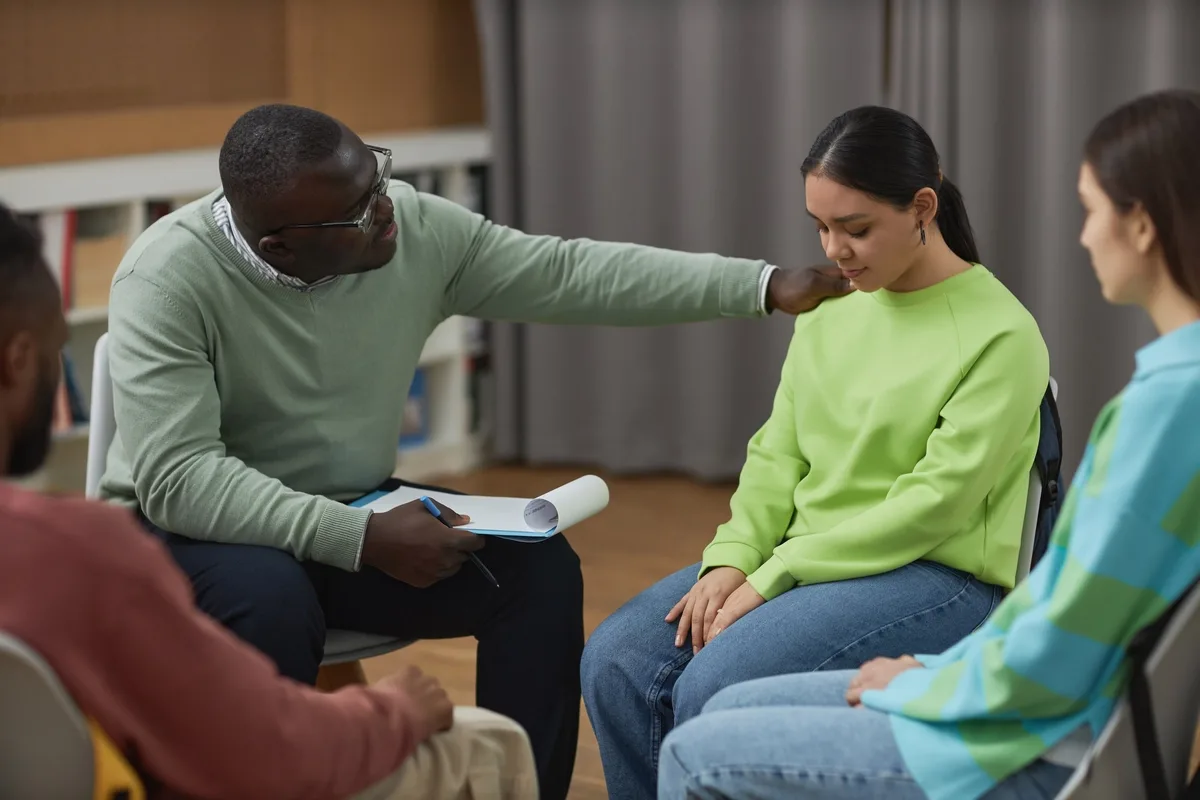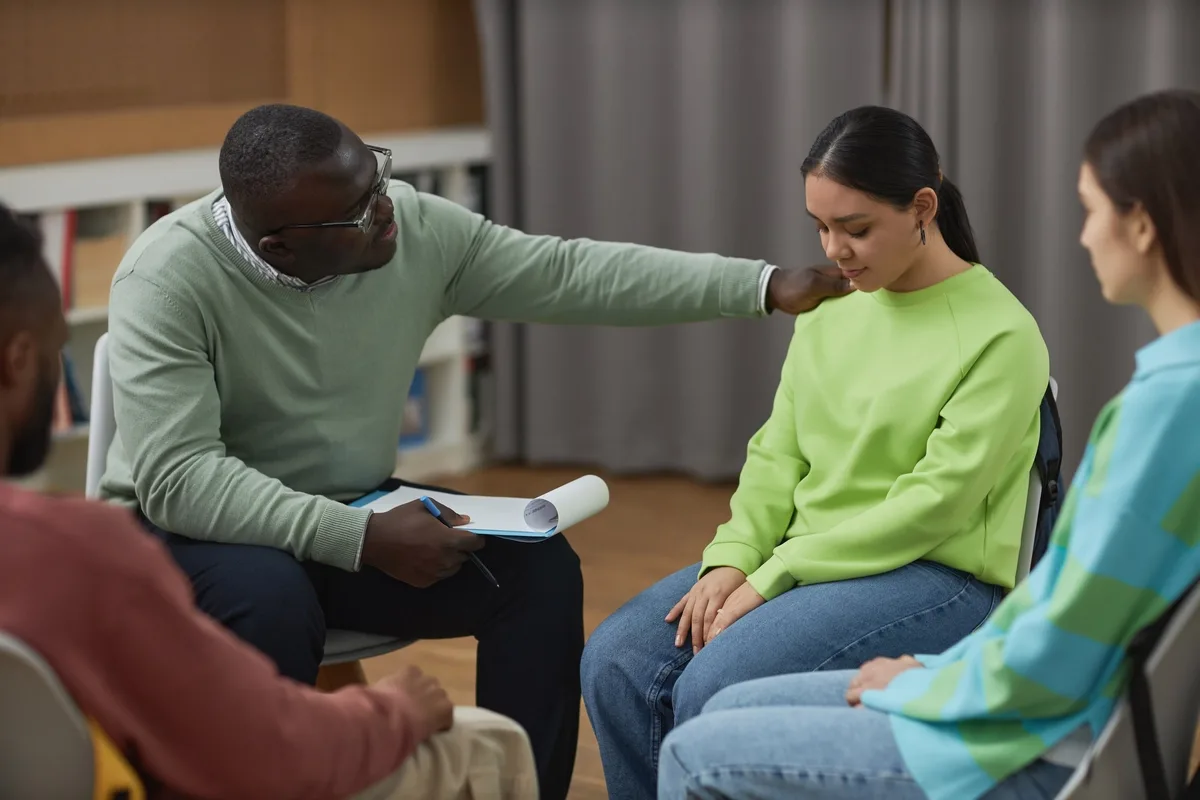24/7 Helpline:
(866) 899-221924/7 Helpline:
(866) 899-2219
Learn more about Group Therapy centers in Ida
Group Therapy in Other Cities

Other Insurance Options

Anthem

BlueCross

Medical Mutual of Ohio

American Behavioral

Access to Recovery (ATR) Voucher
Beacon

Amerigroup

Sliding scale payment assistance

Health Partners

Absolute Total Care

Horizon Healthcare Service

State Farm

Humana

Sutter

ComPsych

UMR

Oxford

Private insurance

Cigna

BlueShield









Center for Behavioral Health
Center for Behavioral Health is a private rehab located in Shreveport, Louisiana. Center for Behavio...

Physicians Behavioral Hospital
Physicians Behavioral Hospital, located in Shreveport, Louisiana, offers alcohol and drug rehab serv...

Shreveport-Bossier Rescue
Shreveport-Bossier Rescue is a non-profit organization located in Shreveport, LA. Shreveport-Bossier...

Shreveport Behavioral Health Clinic
Shreveport Behavioral Health Clinic is a public rehab located in Shreveport, Louisiana. Shreveport B...

Council on Alcoholism and Drug Abuse of Northwest Louisiana – CADA
Council on Alcoholism and Drug Abuse of Northwest Louisiana (CADA) is a non-profit, private health o...

Palmetto Addiction Recovery Center
Palmetto Addiction Recovery Center provides high quality, personalized treatment to individuals suff...

CADA – Adolescent Treatment Center
CADA - Adolescent Treatment Center provides high-quality, affordable addiction treatment. CADA - Ado...








Contemporary Quality Care
Contemporary Quality Care is a private rehab located in Shreveport, Louisiana. Contemporary Quality ...

Community Enrichment
Community Enrichment is a private rehab located in Shreveport, Louisiana. Community Enrichment speci...

Center for Families – Addictive Disorders
Center for Families – Addictive Disorders is a private rehab located in Shreveport, Louisiana. Cente...

Rehab Services of NW LA
Rehab Services of NW LA is a private rehab located in Shreveport, Louisiana. Rehab Services of NW LA...

Halfwaythere Cottage
Halfwaythere Cottage is a private rehab located in Shreveport, Louisiana. Halfwaythere Cottage speci...

Cottage House For Men
Cottage House For Men is a private rehab located in Shreveport, Louisiana. Cottage House For Men spe...

New Day Rehabilitation
New Day Rehabilitation is a private rehab located in Shreveport, Louisiana. New Day Rehabilitation s...

Christian Counseling
Christian Counseling is a private rehab located in Shreveport, Louisiana. Christian Counseling speci...

Detox Abuse Action Addiction
Detox Abuse Action Addiction is a private rehab located in Shreveport, Louisiana. Detox Abuse Action...

Substance Abuse Services Oklahoma Safety Center
Substance Abuse Services Oklahoma Safety Center is a private rehab located in Shreveport, Louisiana....

Regional Counseling Center – Oil City
Regional Counseling Center – Oil City is a private rehab located in Oil City, Pennsylvania. Regional...

Family Services – Alcohol and Drug Counseling – Oil City
Family Services – Alcohol and Drug Counseling – Oil City is a private rehab located in Oil City, Pen...

Family Services and Childrens Aid Society
Family Services and Childrens Aid Society is a private rehab located in Oil City, Pennsylvania. Fami...
















































































































































































































